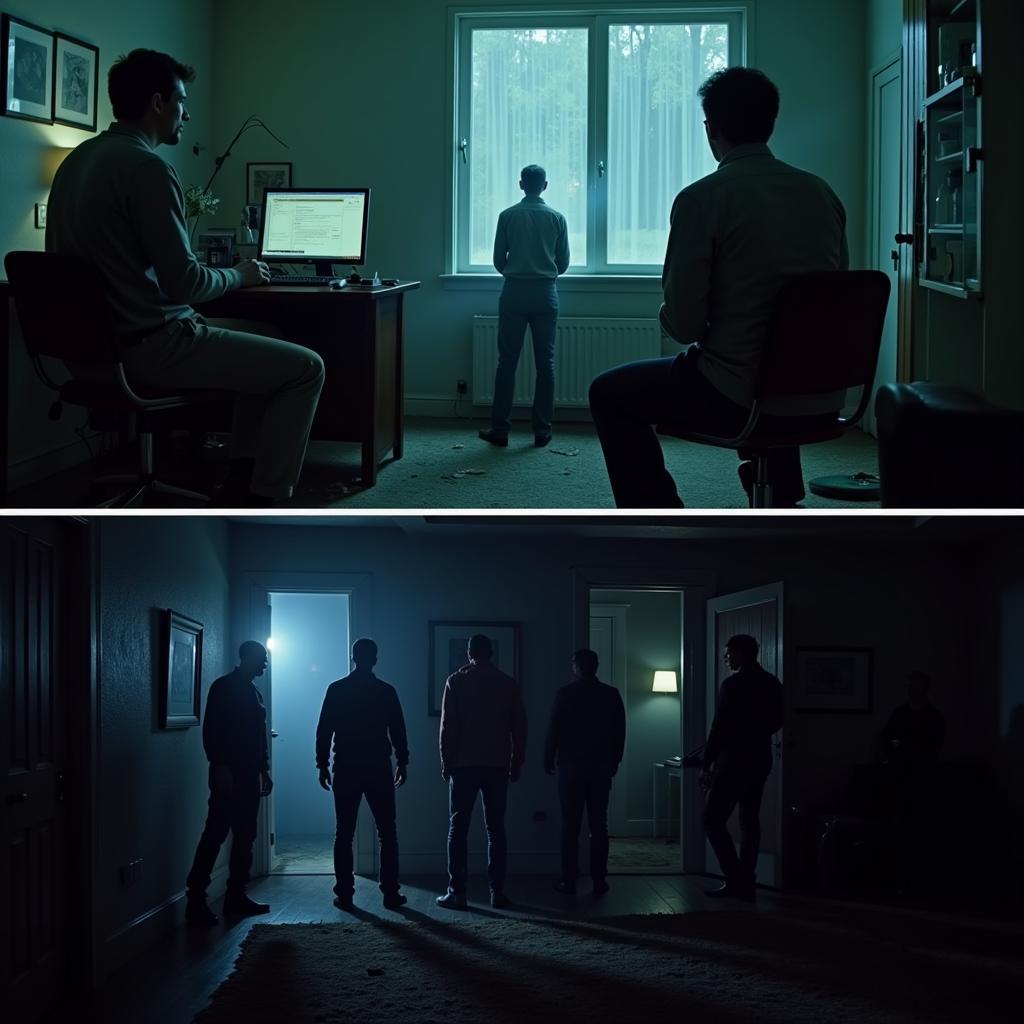Experimental And Nonexperimental Research methods offer distinct approaches to understanding the unexplained. While both seek to explore the mysteries surrounding paranormal phenomena, they differ significantly in their methodologies and the types of conclusions they can draw. This article delves into the nuances of these research methods, providing insights into their applications within the realm of paranormal investigation. nonexperimental research design helps researchers explore correlations and patterns in observed phenomena.
 Experimental vs. Nonexperimental Research in Paranormal Investigations
Experimental vs. Nonexperimental Research in Paranormal Investigations
Exploring Experimental Research in Paranormal Studies
Experimental research in the paranormal involves manipulating variables in a controlled environment to determine cause-and-effect relationships. This is an extremely difficult task in paranormal research due to the elusive and often unpredictable nature of the phenomena being studied. However, some researchers attempt to create controlled experiments to test claims of psychic abilities, such as telepathy or precognition.
Challenges of Experimental Paranormal Research
While the rigor of experimental research is appealing, its application to the paranormal presents significant hurdles. Reproducibility, a cornerstone of scientific inquiry, is often difficult to achieve. Paranormal experiences are frequently subjective and tied to specific individuals or locations, making it challenging to replicate results. Additionally, the influence of belief and expectation can confound findings.
Delving into Nonexperimental Research in Paranormal Investigations
Nonexperimental research, which includes observational studies, surveys, and case studies, is more commonly employed in paranormal investigations. This approach involves observing phenomena without manipulating variables. For example, a researcher might conduct interviews with individuals who claim to have witnessed paranormal activity or analyze historical records of haunted locations. This type of research allows for the exploration of patterns and correlations, but it cannot establish causality. example of an experimental research design can be contrasted with nonexperimental approaches to understand the strengths and weaknesses of each.
The Power of Observation in Nonexperimental Research
Observational studies, a key component of nonexperimental research, can provide valuable insights into paranormal phenomena. By carefully documenting occurrences and gathering eyewitness accounts, researchers can begin to identify patterns and commonalities. This approach is especially useful in investigating hauntings and other location-based paranormal activity. For example, researchers might use EMF meters, thermal cameras, and audio recorders to document environmental anomalies in a supposedly haunted location.
Comparing Experimental and Nonexperimental Research: Which is Right for Paranormal Study?
Choosing between experimental and nonexperimental research depends on the specific research question. If the goal is to determine a cause-and-effect relationship, experimental research is ideal, though challenging to implement effectively in paranormal studies. If the goal is to explore patterns, gather descriptive data, or analyze existing phenomena, nonexperimental research offers a more feasible approach.
Dr. Evelyn Reed, a renowned parapsychologist, emphasizes the importance of combining approaches: “While controlled experiments are the gold standard, nonexperimental research provides valuable context and can lead to the development of testable hypotheses for future experimental studies.”
Professor Arthur Vance, a historian specializing in folklore and mythology, adds another perspective: “Nonexperimental research in the paranormal often bridges the gap between anecdotal evidence and scientific inquiry, providing a framework for understanding cultural beliefs surrounding the supernatural.”
Conclusion: Unraveling the Mysteries Through Research
Both experimental and nonexperimental research play a vital role in furthering our understanding of the paranormal. By combining meticulous observation with rigorous experimentation, we can gradually shed light on the mysteries that have captivated humanity for centuries. Continuing research, using both experimental and nonexperimental approaches, is essential to unraveling the enigmatic world of the paranormal.
FAQs
- What is the main difference between experimental and nonexperimental research?
- What are some examples of nonexperimental research methods used in paranormal investigations?
- Why is it difficult to conduct experimental research on paranormal phenomena?
- What are the limitations of nonexperimental research in the paranormal field?
- How can both experimental and nonexperimental research contribute to a better understanding of the paranormal?
- What are some ethical considerations in paranormal research?
- Where can I find more information about Paranormal Research methods?
Need help with a paranormal investigation? Contact us 24/7. Phone: 0904826292, Email: research@gmail.com. Visit us at No. 31, Alley 142/7, P. Phú Viên, Bồ Đề, Long Biên, Hà Nội, Việt Nam.